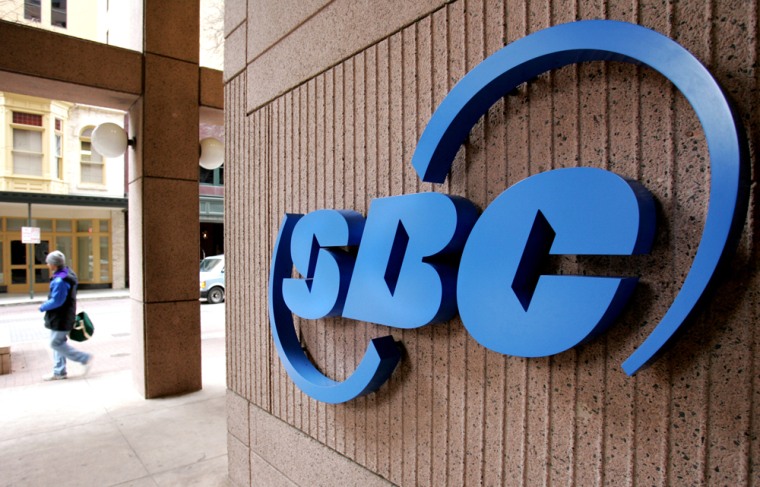The storied AT&T name will live on after the long distance phone company is acquired by SBC Communications Inc., which is renaming itself and most of its products under the 120-year-old brand.
On Thursday, federal antitrust regulators approved SBC’s $16 billion purchase of AT&T Corp., its former corporate parent, as well as Verizon Communications Inc.’s $7.5 billion acquisition of MCI Inc., ordering the companies to sell certain assets to preserve competition in 19 markets.
The name change had been widely predicted ever since the SBC-AT&T deal was announced in January, given the global recognition and reputation of AT&T as compared with SBC, a little-known brand outside the 13 states where it provides local phone service.
AT&T, which once stood for American Telephone and Telegraph, traces its roots as a company back to the 1875 invention of the telephone by founder Alexander Graham Bell. But the name did not come into being until a decade later, when it was created as the long-distance subsidiary of American Bell Telephone Company. The name was officially shortened to the initials AT&T in 1994.
San Antonio-based SBC, one of the “Baby Bells” created by the 1984 breakup of AT&T’s national monopoly, was formerly named Southwestern Bell Corp.
SBC also said it plans to adopt a new stock market ticker symbol and unveil a new corporate logo. However, it declined to say whether that meant it might adopt AT&T’s distinctive long-time “T” ticker symbol, or incorporate the familiar AT&T globe in the new logo.
“This is the brand that will lead the industry in delivering the next generation of communications and entertainment services,” SBC Chief Executive Edward E. Whitacre Jr. said in a statement, referring to the upgrade his company’s telephone network for cable TV and new multimedia services.
The Justice Department attached certain conditions in announcing its approval, requiring Verizon and SBC to divest some local network facilities in 19 metropolitan areas. Without those conditions, the agency said, the mergers would have resulted in higher prices for certain customers in 11 metropolitan areas in SBC’s territory and eight markets in Verizon’s territory.
The deals are also subject to approval by the Federal Communications Commission, which is widely expected to sign off at its monthly public meeting on Friday, though the decision could slip to next week.
Either way, the AT&T deal might be completed by late November — more than half a year earlier than SBC originally projected. Verizon, also a former unit of AT&T, indicated separately Thursday it expect the MCI deal to close in January.
SBC’s name change will not affect Cingular Wireless LLC, a joint venture between SBC and BellSouth Corp. that became the nation’s largest cell phone provider about a year ago with the $41 billion purchase of AT&T Wireless, a former AT&T subsidiary.
The combination of SBC and AT&T will create a company that’s either the largest or second largest player in its various markets.
AT&T was far more profitable than its Bell offspring until the past decade, as new rivals and technologies such as cell phones and e-mail began eating away at the long-distance business.
Last week, the company reported that its customer base had sunk below 20 million homes, barely a third of the 60 million it once boasted.
Meanwhile, interstate and international phone service now sells for just pennies a minute, down from the dollars per call such services once generated.
